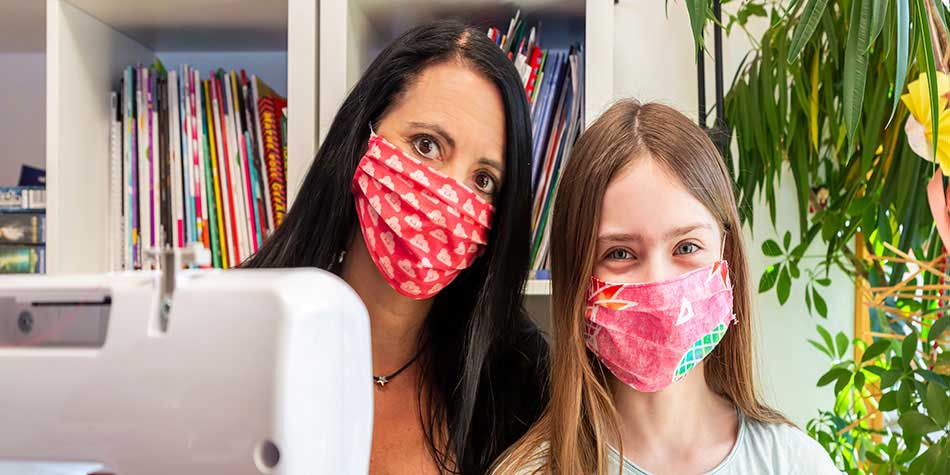
With recommendations from the CDC about wearing cloth facemasks in public places (and some areas enforcing compliance laws), it’s a good idea to make sure you have the right face covering and are wearing it correctly. This is especially important for people at higher risk of coronavirus complications, including seniors, people with underlying health conditions, pregnant women and people who live in areas where the spread of COVID-19 is significant.
What kind of mask should we be wearing?
For running essential errands in public areas where the social distancing guidelines of six feet may be hard to maintain, a homemade cloth facemask, scarf or bandana might help prevent the virus from spreading.
Why should we wear a facemask?
When studies showed that a significant portion of people with COVID-19 could spread the virus even if they have no symptoms themselves, the CDC reversed its earlier position on facemasks. There may be less chance that you'll spread the disease (if you have it) by routinely wearing a facemask. And, depending on the fabric and how it’s made, a homemade mask can sometimes protect the way a simple medical version does.
Just to be clear, however, facemasks don’t take the place of social distancing. Recommendations are still that you stay home as much as possible and stay at least six feet away from other people in public.
Who should not wear a facemask?
While everyone else should wear a cloth facemask in public, be sure not to place them on:
- Children under the age of 2
- Anyone with breathing problems
- Anyone who is unable to remove the mask without help
What to look for in a cloth facemask.
Cloth facemasks—they’re the latest DIY project. Even the CDC has sew and no-sew how-tos. Any sturdy, cloth material that you can clean in a washing machine will work, including items such as cotton sheets, bandanas or old T-shirts.
To be effective and wearable, the ideal cloth face coverings:
- Cover your nose and mouth
- Fit snugly but comfortably against the sides of your face
- Are secured with ties or ear loops
- Include more than one layer of fabric: Masks should be dense enough to capture virus particles but breathable enough so that you can tolerate wearing it
- Can be washed and dried without losing shape
How to take care of your cloth facemask.
Protect yourself and the effectiveness of your mask:
- Launder your cloth facemask often
- Avoid touching your eyes, nose or mouth when removing your mask
- Wash your hands right away after taking your mask off